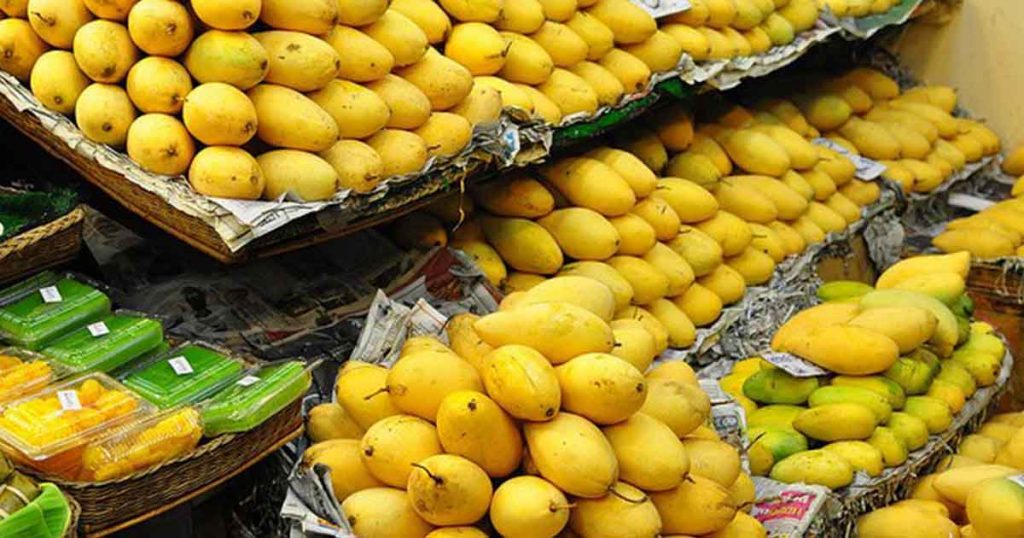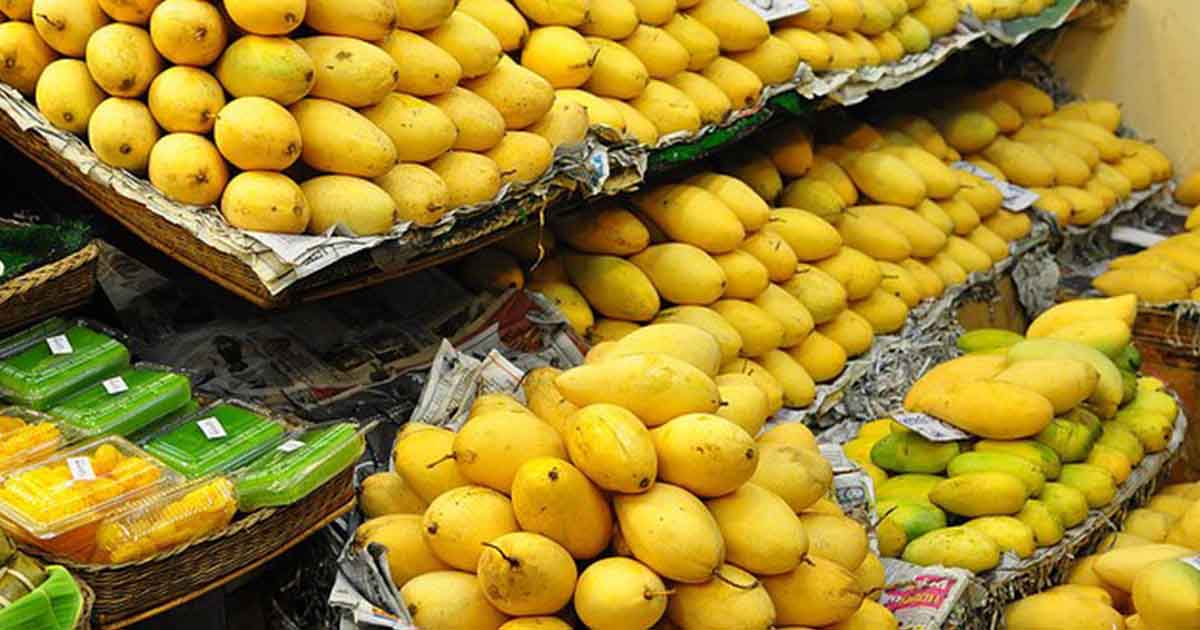Exporters and horticulture experts issued a warning on Thursday, expressing concerns over the adverse effects of climate change on mango yield for the third consecutive year. It is anticipated that the overall production of this major fruit might plummet by 600,000 metric tonnes this year.
REGIONAL IMPACT: PUNJAB AND SINDH BEAR THE BRUNT
Punjab and Sindh stand as the primary producers of mangoes in Pakistan, accounting for 70% and 29% of the national produce, respectively. Conversely, Khyber-Pakhtunkhwa (K-P) contributes a mere 1% to the total output. Poor weather conditions are expected to severely impact Punjab’s yield, with a projected reduction of 35-40%, while Sindh may witness a decrease of less than 20%.
EXPORT TARGETS AND MARKET DIVERSIFICATION
In light of the challenges posed by climate change, the All Pakistan Fruit and Vegetable Exporters Association (APFVEA) has set an export target of 100,000 metric tonnes for the current season, commencing on May 20. APFVEA Patron-in-Chief Waheed Ahmed emphasized the importance of diversifying export markets, particularly focusing on value-added markets such as China, America, Turkey, and Japan. Additionally, Iran, Afghanistan, and Central Asian states are expected to play crucial roles in achieving the mango export target.
IMPACT OF CLIMATE CHANGE: A GROWING CONCERN
Ahmed highlighted the detrimental impact of climate change on mango orchards across the country, leading to a significant reduction in production. The unavailability of export-quality mangoes due to adverse weather conditions posed challenges in meeting the export target last year.
REVISED EXPORT TARGETS AND MARKET EXPANSION STRATEGIES UNVEILED
Reflecting on the challenges encountered last season, where the export target of 125,000 metric tonnes fell short, with only 100,000 metric tonnes exported, this year, a revised target of 100,000 metric tonnes has been set. Despite the reduction in target, experts project that achieving this goal could generate approximately $90 million in foreign exchange.
STRATEGIC MARKET DIVERSIFICATION EFFORTS
Waheed Ahmed emphasized the importance of diversifying export markets to mitigate risks and enhance opportunities for Pakistani mangoes. This season, concerted efforts will be directed towards stabilizing markets in Central Asian countries and Iran through Afghanistan. Moreover, endeavors will be intensified to bolster volumes for China’s market, where exports commenced during the previous season.
FOCUS ON VALUE-ADDED MARKETS
In addition to traditional markets, focus will be on expanding exports to value-added markets such as Australia, Japan, and America. Pakistani mangoes will receive promotional support in Turkey and Far East countries through collaborative efforts with the Trade Development Authority of Pakistan (TDAP).
CHALLENGES AND OPPORTUNITIES IN THE MANGO VALUE-ADDED SECTOR
The value-added sector, encompassing mango processing, packaging, and warehousing, constitutes a significant portion of Pakistan’s economy, valued at over Rs100 billion. This sector not only contributes substantially to the economy but also provides employment opportunities to millions of people. However, it faces a myriad of challenges, including the rising costs of electricity, gas, transportation, garden maintenance, pesticides, and water management.
CLIMATE CHANGE IMPACTS AND AGRICULTURAL CHALLENGES
According to Waheed Ahmed, the impacts of climate change on fruit cultivation, particularly mangoes, and the agricultural sector at large are becoming increasingly pronounced each year. The phenomenon of long winters, heavy rains, and hail following heat waves has disrupted traditional agricultural patterns and exacerbated agricultural diseases.
CALL FOR RESEARCH AND DEVELOPMENT FOCUS
Progressive farmers and growers from Sindh have criticized both federal and provincial governments and their associated organizations for not prioritizing research and development efforts. Nabi Bux Sathio, Jawaid Junejo, and Ali Palh emphasized the urgent need for research-based solutions to address the challenges faced by the agricultural sector.
EMBRACING AGRI-TECH AND INNOVATION
To tackle these challenges and enhance mango yield and exports, stakeholders advocate for the development of new varieties and seeds that are resilient to changing weather conditions. Additionally, the adoption of agricultural technologies (agri-tech) and the implementation of awareness programs are deemed essential. These programs would provide growers and progressive farmers with updated information on climate change, new crop patterns, and other pertinent issues.
GOVERNMENT INTERVENTION AND SUPPORT
The stakeholders urged government institutions to play a proactive role in developing new varieties suited to changing climatic conditions. They also called for ensuring the availability of suitable pesticides and launching prevention programs to safeguard agriculture against potential threats.
LOOKING AHEAD
Addressing the challenges facing the mango value-added sector requires a multi-faceted approach, involving collaboration between government bodies, research institutions, and industry stakeholders. By prioritizing research and innovation, embracing technology, and providing necessary support, Pakistan can navigate the challenges posed by climate change and strengthen its position as a leading exporter of mangoes.



















